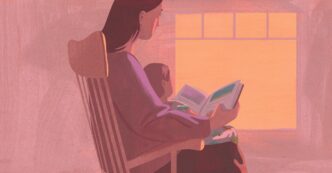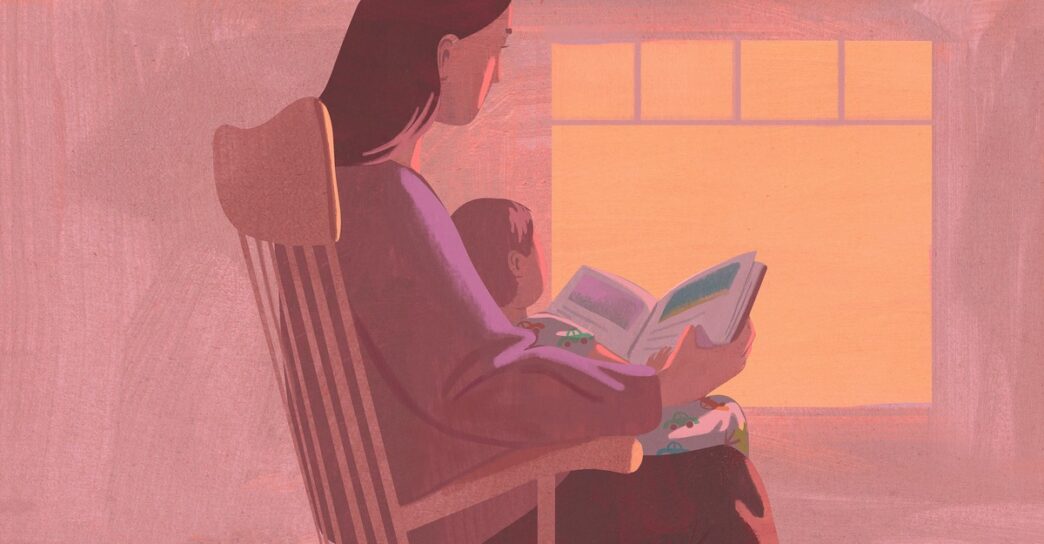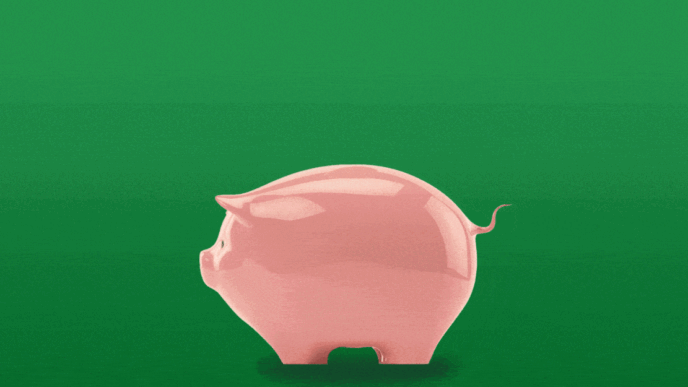When my daughter was a few months old, I joined a group for new moms. We brought our babies and talked for a couple of hours each Wednesday in a community center in Oakland, California. I was an unusual parent within that group. Unlike the other moms, I hadn’t given birth. At the time, I was fostering my daughter, though my husband and I have now adopted her. I was the only disabled parent, at least as far as I know; I have a connective-tissue disorder, Ehlers-Danlos syndrome, and an associated neurological condition, postural orthostatic tachycardia syndrome. Based on what the other moms were sharing, I also seemed to be having an easier time than they were adjusting to parenthood. While they described uncertainty about their identities and worry about the intensity of their babies’ demands, my experience was relatively peaceful.
That last difference surprised me. I rationalized that it was probably because the other moms were recovering from giving birth and I was not. Still, I never expected that while parenting inside a body that gets injured from rolling over in bed, I might have an easier time than my nondisabled counterparts. I’ve begun to suspect, however, that my experience adjusting to parenthood wasn’t unique among disabled people.

Over the past few years, I’ve interviewed dozens of disabled and nondisabled parents from various racial, ethnic, and socioeconomic backgrounds. I met most of the disabled parents through a Facebook group; most had physical disabilities, though some had intellectual or neurological ones. The nondisabled parents were mostly my own friends or acquaintances. Obviously, my sample was far from representative, and I was not conducting an academic study. My goal was to informally identify some common struggles for each group in the early weeks and months of parenting. During my conversations, I began to notice a pattern. I now believe that being disabled and learning from disability culture both prepared me for the challenges of early parenthood and ultimately set me up to be a more creative and flexible caregiver.
One way to think about the first week of parenthood is as a time when a large portion of a family is or becomes temporarily disabled. Not only does a new baby require relentless attention, but whoever gave birth also typically does. Even if you adopted a child, as I did, you’re likely exhausted. For those who aren’t disabled, suddenly being forced to rely on other people for their basic bodily needs, while also assuming responsibility for a human being who demands so much from them, can be terrifying. As Jennifer Natalya Fink argues in All Our Families: Disability Lineage and the Future of Kinship, people tend to be afraid of disability because they are afraid of needing care. And just about anyone requires care postpartum.
Most of the nondisabled parents I spoke with characterized the first week after bringing a baby home as one of the most challenging times of their life. For some, meeting their new child’s needs—and the specter of a future oriented around those needs—felt impossible. Rachel Somerstein, the author of Invisible Labor: The Untold Story of the Cesarean Section, told me that when her daughter cried, she sometimes got so overwhelmed that she became certain the baby would do so nonstop until college. Other mothers told me that some of their darkest moments came when their own body didn’t cooperate. One interviewee described falling asleep on the floor and getting trapped there for 20 minutes after she awoke because her stomach muscles were so damaged that she couldn’t find a way to get herself up. She and the other mothers I spoke with were coming to terms with the frightening reality that we cannot, through the force of our will and behavior, make our babies or our body do what we want them to.
The disabled people I spoke with, by contrast, had spent years of living in a body that rebelled and failed, and many had learned the hard way that recovery from surgery is long and arduous and that the body is impossible to predict. One mother, Jessie Owen, who became quadriplegic after a car accident in her 20s and gave birth to twins via C-section, told me that although she had preeclampsia and prolonged high blood pressure after giving birth, her first week with her baby went smoothly. She knew what to expect, and she was ready to get creative with taking care of herself. “Dealing with recovery was pretty breezy,” Owen told me. “I didn’t feel great, for sure, but it wasn’t all that bad.”
Of course, not every disabled and nondisabled person has the experience of the people I’ve interviewed, and disability is not the only factor that influences anyone’s early days of parenting. In my case, I had a safe and kind partner, financial stability, a history of fairly robust mental health, and no physical trauma from childbirth. But being disabled, while making parenting harder for me in some respects, has also taught me invaluable lessons.
As a disabled person in an inaccessible world, I am accustomed to innovating and problem-solving throughout the day. Parenting requires many of the same skills. “Disabled people have years of figuring out how to get along,” Lisa Iezzoni, a professor of medicine at Harvard who studies disabled-health-care access and is herself disabled, told me. “Every day, we navigate a world not designed for us. It’s no wonder we would be particularly well equipped to navigate something new, like parenthood.”
Nearly anyone about to welcome a baby is going to make a plan—and at some point, that plan is going to go wrong. Parents with a firm vision of how things should turn out may be devastated when reality deviates from that expectation. But disabled parents may be less likely to be surprised when they have to adjust, and less likely to blame themselves. In the decade-plus that I’ve been disabled, I’ve learned, through repeated disappointments, that I should expect problems. This attitude might seem pessimistic, but it can actually be protective. When one thing falls apart, I don’t automatically assume that everything will. For example, in 2024, we had our second baby, this time through surrogacy. The birth was difficult. Our surrogate and our baby both experienced complications and almost didn’t make it. But even in the most harrowing moments, I fought to maintain a sense of equilibrium.
Disabled parents, like all parents, are flawed, but embracing imperfection may be one of the most valuable lessons a parent can learn. I once thought that with healthy eating, the right choices, and hard work, I could achieve an ideal life. But then, at 28, I became disabled. As I realized that I could not regain my old capacities despite doing absolutely everything in my power, my worldview started to shift. I confronted what my pursuit of perfection could—and couldn’t—accomplish.
Today, I’m less hard on myself for what others might see as early-parenting shortcomings: feeding my kids formula, taking a chaotic approach to their sleep schedule, leaving the TV on in the background too much. I can recognize my missteps as relatively minor. And I’m more willing to accept help as well. Before I met my partner and had a child, friends took me to the doctor, hung my shower curtains, and brought my trash to the curb. Having become accustomed to community support, asking for aid with a new baby didn’t scare me.
You don’t have to be disabled to adopt this mindset—in fact, elements of it might be a balm for any parent. In some cases, this might mean not obsessing over the expensive stroller you can’t afford and instead making do with the safe one passed down from a neighbor. In others, it might mean asking for more help at night. This vision of parenthood may seem less aspirational. But flexibility and compassion are vital when your body is sore from labor, no one is sleeping through the night, and your family dynamic has shifted beyond recognition. Once you learn to show yourself compassion, you may finally see, as I did, that you are giving your baby exactly what they need.
This essay has been adapted from Jessica Slice’s forthcoming book, Unfit Parent.
When you buy a book using a link on this page, we receive a commission. Thank you for supporting The Atlantic.















